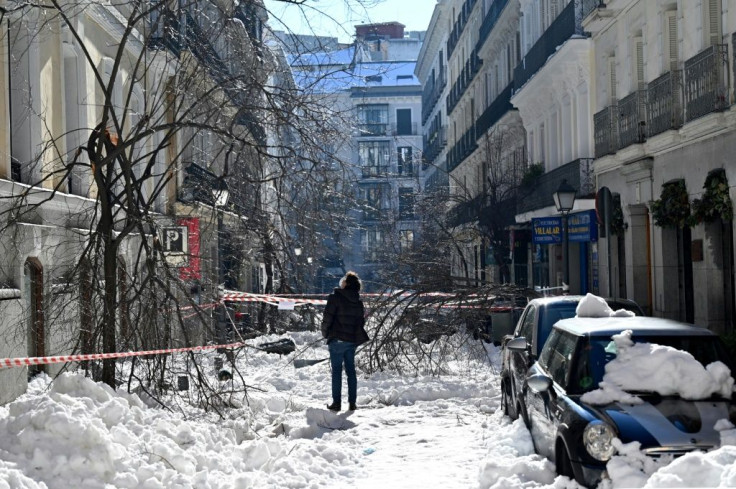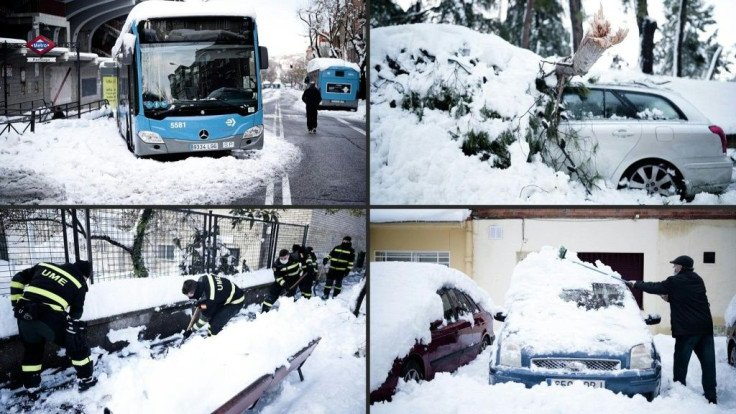Big Freeze Complicates Snow-clearing Efforts In Spain
Extremely low temperatures, in some areas reaching record-breaking levels, swept central and eastern Spain on Tuesday, with the big freeze complicating efforts to clear countless roads blocked by snow.
With much of the country still blanketed in white following the worst snowstorm in decades, efforts resumed early to clear the streets of snow, ice and fallen trees despite the brutal cold.
At least three people died when Storm Filomena swept through the country at the weekend, and on Tuesday, Barcelona officials confirmed another two people, both homeless, had been found dead, with all signs suggesting they died of hypothermia.
"An icy morning with historically low temperatures, clearly far below the seasonal norm across the whole of the country," Spain's AEMET weather agency tweeted.

Overnight, temperatures in central and eastern Spain plummeted, reaching as low as minus 33.6 degrees Celsius (-28.5 Fahrenheit) in Guadalajara, near Madrid, public television said.
And in the capital, the mercury fell to -10.8C, the lowest level in half a century, with Madrid's Barajas airport registering -13.2C, AEMET said.
"Since 1920, there have only been 15 days which have been colder," AEMET Madrid tweeted.
After experiencing the heaviest snowfall in 50 years, Madrid resumed efforts to get back to normal on Tuesday, despite shortages of snowploughs and salt.

With the main roads cleared, the first buses were back in circulation early on Tuesday, with 28 lines expected to be operational throughout the day, 17 of which would prioritise routes serving hospitals, Madrid's EMT transport service said.
Until now, only the city's metro service had been operating, running a 24-hour service to enable key workers get around.
The suburban Cercanias trains were also back up and running as were the high-speed intercity AVEs, although those serving medium-distance routes were still out of action, Spain's public television reported.
Ice is causing treacherous conditions across the city and the authorities urged people to stay at home, with Madrid's hospitals seeing hundreds of people turning up after falling over.
The heavy snow has also damaged hundreds of trees, with the city's main parks shut and firefighters urging people to avoid walking under the branches.
The overnight freeze also left some streets of the capital without water, AFP correspondents reported.
Although the frost and snow will remain widespread in central Spain for the rest of the week, the temperatures will start to ease in the coming days, AEMET said.





















